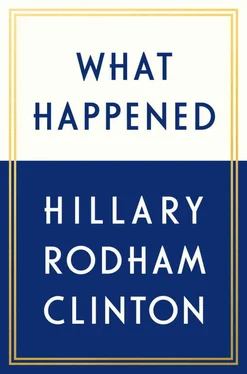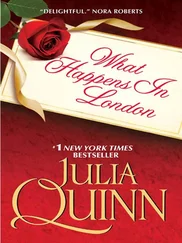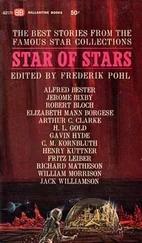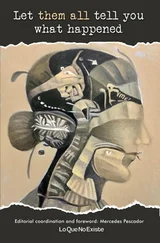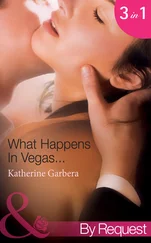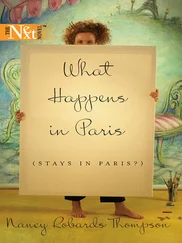It’s a story about unconditional love—the love of a father, and also the Father, who is always ready to love us, no matter how often we stumble and fall. It makes me think of my dad, a flinty, tight-lipped man who nevertheless always made sure I knew what I meant to him. “I won’t always like what you do,” he’d tell me, “but I will always love you.” As a kid, I would come up with elaborate hypotheses to test him. “What if I robbed a store or murdered somebody? Would you still love me then?” He’d say, “Absolutely! I’d be disappointed and sad, but I will always love you.” Once or twice last November, I thought to myself, “Well, Dad, what if I lose an election I should have won and let an unqualified bully become President of the United States? Would you still love me then?” Unconditional love is the greatest gift he gave me, and I’ve tried to give it to Chelsea and now to Charlotte and Aidan.
Nouwen sees another lesson in the parable of the Prodigal Son: a lesson about gratitude. “I can choose to be grateful even when my emotions and feelings are still steeped in hurt and resentment,” he writes. “I can choose to speak about goodness and beauty even when my inner eye still looks for someone to accuse or something to call ugly. I can choose to listen to the voices that forgive and to look at the faces that smile even while I still hear words of revenge and see grimaces of hatred.”
It’s up to us to make the choice to be grateful even when things aren’t going well. Nouwen calls that the “discipline of gratitude.” To me, it means not just being grateful for the good things, because that’s easy, but also to be grateful for the hard things too. To be grateful even for our flaws, because in the end, they make us stronger by giving us a chance to reach beyond our grasp.
My task was to be grateful for the humbling experience of losing the presidential election. Humility can be such a painful virtue. In the Bible, Saint Paul reminds us that we all see through a glass darkly because of our humbling limitations. That’s why faith—the assurance of things hoped for and the conviction of things unseen—requires a leap. It’s because of our limitations and imperfections that we must reach out beyond ourselves, to God and to one another.
As the days went by, November turned into December, and that horrible, no good, very bad time came to a close, I began to rediscover my gratitude. I felt the good effects of all that walking and sleep; I was getting calmer and stronger. I found myself thinking of new projects I’d like to take on. I started accepting invitations to events that spoke to my heart: a Planned Parenthood dinner, the Women in the World summit and the Vital Voices gala celebrating women leaders and activists from around the world, and gatherings with students at Harvard, Wellesley, and Georgetown. Those rooms were full of purposeful energy. I soaked it all up and found myself thinking more about the future than the past.
Do what you feel in your heart to be right—for you’ll be criticized anyway. You’ll be “damned if you do and damned if you don’t.”
—Eleanor Roosevelt
For us, there is only the trying. The rest is not our business.
—T. S. Eliot
Iran for President because I thought I’d be good at the job. I thought that of all the people who might run, I had the most relevant experience, meaningful accomplishments, and ambitious but achievable proposals, as well as the temperament to get things done in Washington.
America was doing better than any other major country, but there was still too much inequality and too little economic growth. Our diversity was an advantage, spurring creativity and vitality, but rapid social and economic change alienated people who thought too much was happening too fast and felt left out. Our position in the world was strong, but we had to cope with a combustible mix of terrorism, globalization, and the advances in technology that fueled them both.
I believed that my experiences in the White House, Senate, and State Department equipped me to take on these challenges. I was as prepared as anyone could be. I had ideas that would make our country stronger and life better for millions of Americans.
In short, I thought I’d be a damn good President.
Still, I never stopped getting asked, “Why do you want to be President? Why? But, really—why?” The implication was that there must be something else going on, some dark ambition and craving for power. Nobody psychoanalyzed Marco Rubio, Ted Cruz, or Bernie Sanders about why they ran. It was just accepted as normal. But for me, it was regarded as inevitable—people assumed I’d run no matter what—yet somehow abnormal, demanding a profound explanation.
After the election, I thought a lot about this. Maybe it’s because I’m a woman, and we’re not used to women running for President. Maybe it’s because my style of leadership didn’t fit the times. Maybe it’s because I never explained myself as bluntly as this.
So let me start from the beginning and tell you how and why I made the decision to run.
=====
“You might lose,” Bill told me. “I know,” I said. “I might lose.”
The problems started with history. It was exceedingly difficult for either party to hold on to the White House for more than eight years in a row. In the modern era, it had happened only once, when George H. W. Bush succeeded Ronald Reagan in 1989. No nonincumbent Democrat had run successfully to succeed another two-termer since Vice President Martin Van Buren won in 1836, succeeding Andrew Jackson.
There was still a lot of pent-up anger and resentment left over from the financial crash of 2008–2009, and while that had happened on the Republicans’ watch, Democrats had presided over a recovery that had been too slow.
There also was “Clinton fatigue” to consider. Pundits were already complaining that the election would be an exhausting contest between two familiar dynasties: the Clintons and the Bushes.
Then there was the matter of my gender. No woman had ever won the nomination of a major party in the history of our country, let alone the presidency. It’s easy to lose sight of how momentous that is, but when you stop to consider what it means and the possible reasons behind it, it’s profoundly sobering.
It was a chilly day in autumn 2014, and Bill and I had been having the same conversation for months now. Should I run for President for a second time? Lots of talented people were ready to jump on board with my campaign if I ran. The press and most of the political class assumed I was already running. Some of them were so convinced by the caricature of me as a power-hungry woman that they couldn’t imagine me doing anything else. I, on the other hand, could imagine lots of different paths for myself.
I already knew how it felt to lose. Until you experience it, it’s hard to comprehend the ache in your gut when you see things going wrong and can’t figure out how to fix them; the sharp blow when the results finally come in; the disappointment written on the faces of your friends and supporters. Political campaigns are massive enterprises with thousands of people working together toward a common goal, but in the end, it’s intensely personal, even lonely. It’s just your name on the ballot. You’re embraced or repudiated all by yourself.
The race against Barack Obama in 2008 was close and hard-fought. By the end, he led in the all-important delegate count, but our popular vote totals were less than one-tenth of a percent apart. That made it all the more painful to accept defeat and muster up the good cheer to campaign vigorously for him. The saving grace was the respect I had for Barack and my belief that he would be a good President who would do everything he could to advance the values we both shared. That made it a lot easier.
Читать дальше
